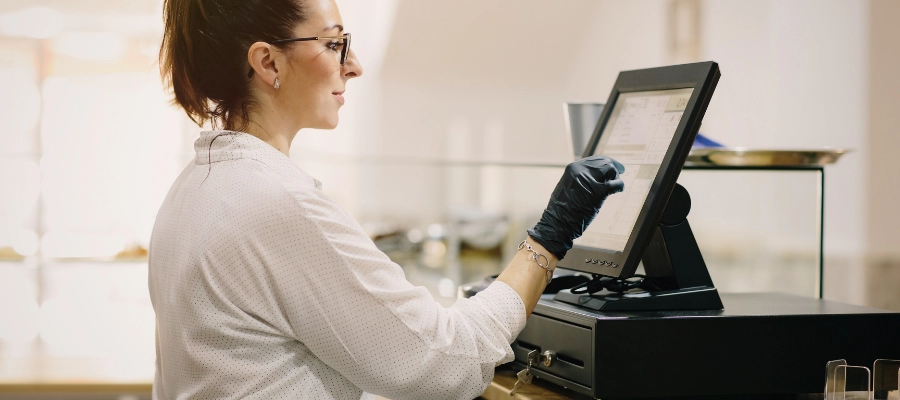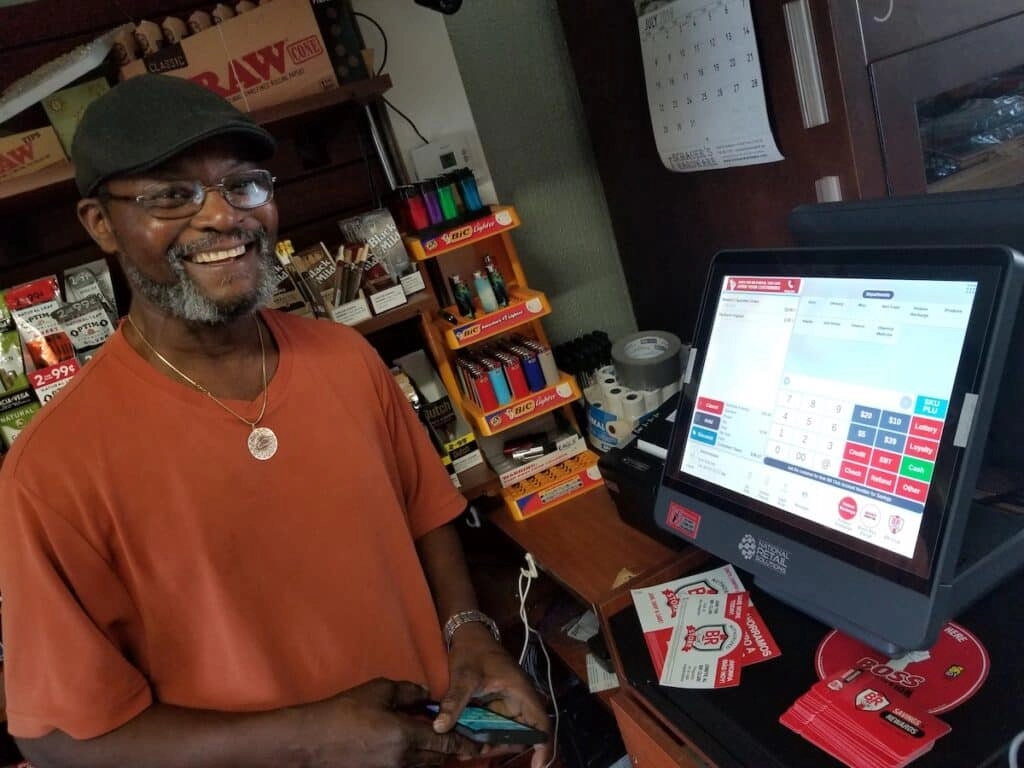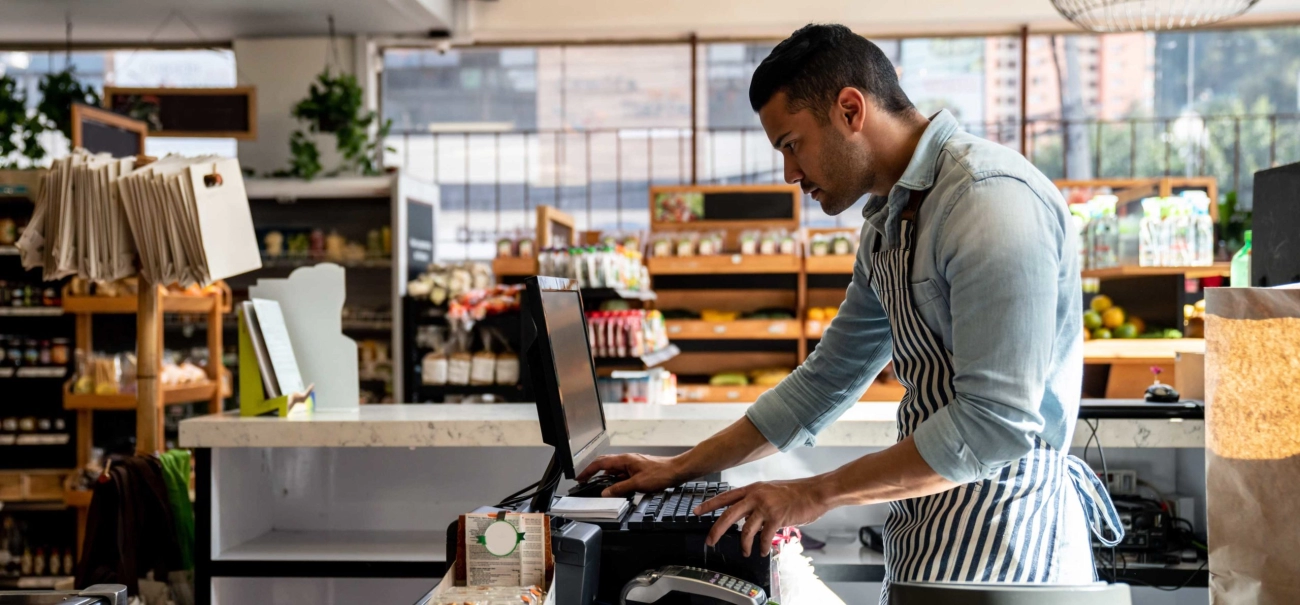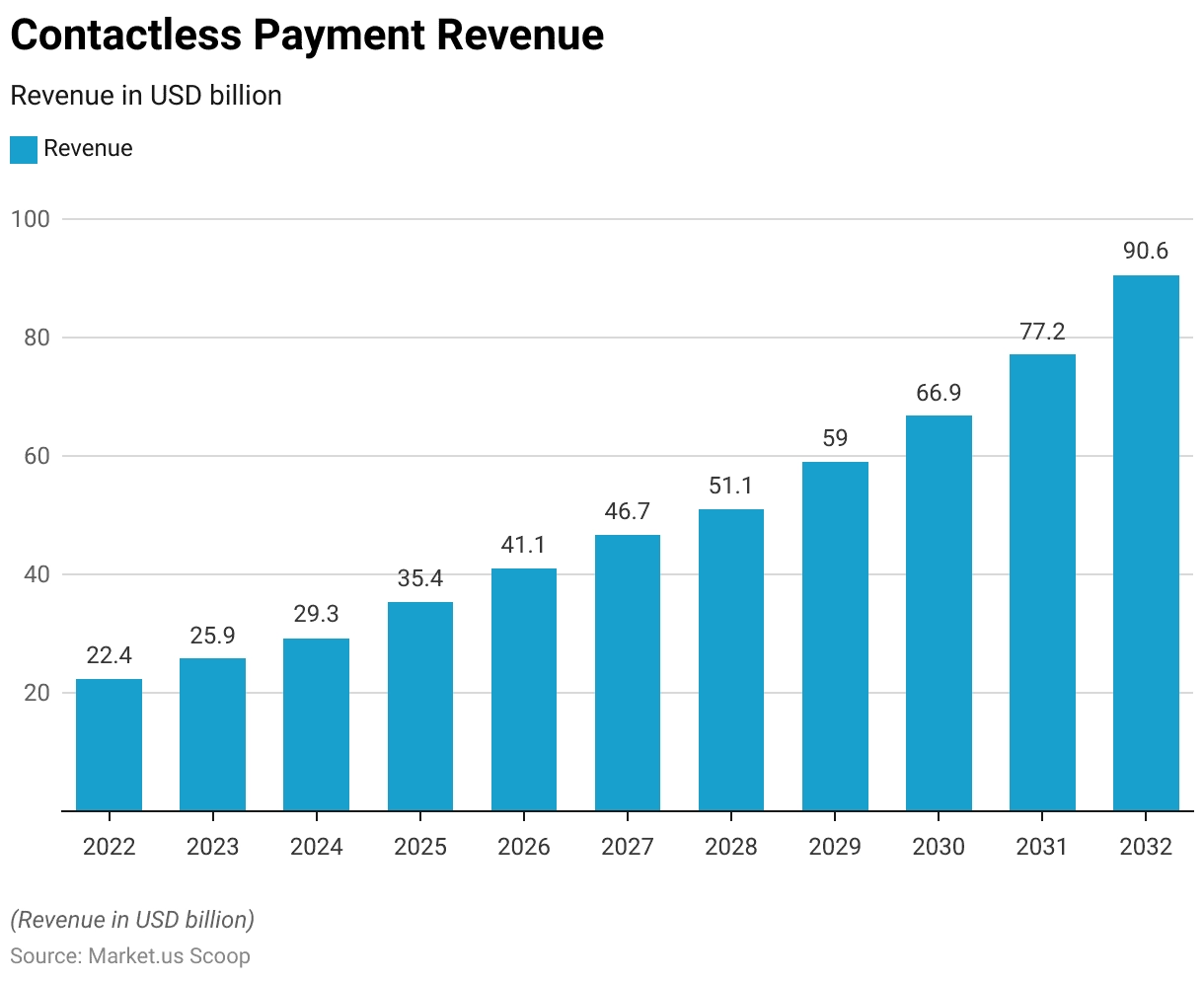Was ist POS-Hardware Ein vollständiger Leitfaden zu Komponenten des POS-Systems

Fragst du dich, was POS-Hardware ist und warum es für dein Geschäft wichtig ist? Egal, ob du ein geschäftiges Einzelhandelsgeschäft, ein gemütliches Café oder eine wachsende Hospitality-Kette leitest, die richtige Point-of-Sale-Hardware kann den Unterschied ausmachen. Es geht nicht nur um die Zahlungsabwicklung—es geht darum, reibungslose, effiziente Transaktionen zu schaffen, die deine Kunden zufriedenstellen und dein Geschäft reibungslos laufen lassen.
In diesem Leitfaden erhältst du eine klare, unkomplizierte Erklärung von POS-Hardware-Komponenten, wie sie zusammenarbeiten und warum die Wahl hochwertiger Geräte entscheidend ist, um Geschwindigkeit, Genauigkeit und den Gesamterfolg zu steigern. Wenn du dein Kassensystem aufrüsten möchtest oder gerade erst anfängst, helfen dir die Grundlagen hier, selbstbewusste Entscheidungen zu treffen.
Bereit, in die Welt der POS-Hardware-Geräte einzutauchen und herauszufinden, wie die richtige Einrichtung dein Geschäft transformieren kann? Lass uns anfangen!
Was ist POS-Hardware Definition und Überblick
Wenn Sie POS-Hardware, denke an die physischen Geräte, die aus einer Point-of-Sale-Systemsbestehen—der Ausrüstung, die du beim Checkout an Kassen in Einzelhandelsgeschäften, Restaurants und anderen Unternehmen berührst und siehst. POS-Hardware umfasst alles von Registrierkassen und Barcodescannern bis hin zu Belegdruckern und Kundendisplays. Diese Geräte arbeiten zusammen, um Verkaufsprozesse effizient und genau abzuwickeln.
POS-Hardware ist das Rückgrat eines Einzelhandels-POS-Hardware-Setups oder jedes Unternehmens, das digitale Checkout-Prozesse nutzt. Sie verarbeitet die Eingaben und Ausgaben, die notwendig sind, um Zahlungen abzuschließen, Inventar zu verfolgen und Belege zu drucken. Im Gegensatz zur Software, die auf deinem Computer oder Terminal läuft und Daten sowie Geschäftslogik verwaltet, ist POS-Hardware die greifbare Ausrüstung, die direkt mit Kunden und Verkaufspersonal interagiert.
Unterschied zwischen POS-Hardware und Software
Es ist leicht, POS-Hardware mit Software zu verwechseln, aber sie erfüllen unterschiedliche Rollen:
- POS-Hardware: Physische Geräte wie Registrierkassen, Barcodescanner und Zahlungsterminals.
- POS-Software: Die Programme und Anwendungen, die auf der Hardware laufen und Verkäufe, Inventar und Kundendaten verwalten.
Beide müssen Hand in Hand arbeiten, um ein reibungsloses Checkout-Erlebnis zu gewährleisten. Ohne Hardware kann Software keine Verbindung zu Kunden herstellen oder Verkäufe abschließen, und ohne Software sind Hardware nur eine Ansammlung von nicht verbundenen Maschinen.
Integration mit POS-Software
Einer der wichtigsten Aspekte von POS-Hardware ist, wie gut sie sich in POS-Softwarelösungenintegriert. Die Integration stellt sicher, dass alle Geräte effektiv kommunizieren und Daten in Echtzeit teilen. Zum Beispiel:
- Ein Barcodescanner sammelt Produktinformationen und sendet sie direkt an die Software.
- Zahlungsterminals verarbeiten Kreditkartentransaktionen und aktualisieren die Verkaufsaufzeichnungen sofort.
- Belegdrucker erstellen gedruckte Nachweise, die mit den digitalen Verkaufsdaten in der Software übereinstimmen.
Gute Integration unterstützt schnelleren Checkout, bessere Bestandsverfolgung und reibungslosere Abläufe insgesamt. Wenn Sie POS-Hardware-Gerätewählen, möchten Sie Produkte, die mit Ihrer Software kompatibel sind, oder idealerweise Hardware und Software gebündelt und gemeinsam optimiert.
Eine ordnungsgemäße Integration hilft auch bei modernen Funktionen wie Cloud-Synchronisation und kontaktlosen Zahlungen, wodurch Ihr POS-System anpassungsfähig und zukunftssicher wird.
Kernkomponenten von POS-Hardwaregeräten

Wenn man über POS-Hardware-Gerätespricht, ist das Verständnis der Kernkomponenten essenziell. Jedes Teil spielt eine spezifische Rolle, um Transaktionen reibungslos, schnell und genau zu gestalten. Hier ist eine Aufschlüsselung der wichtigsten Komponenten des Point-of-Sale-Systems:
Kassen und Terminals
Das Kasse or POS-Terminal ist das Herzstück Ihres Systems. Hier geben Sie Verkäufe ein, berechnen Summen und verwalten Zahlungen. Moderne POS-Terminals kombinieren oft Touchscreen-Displays mit integrierter Rechenleistung und ersetzen traditionelle Registrierkassen vollständig. Für viele Einzelhändler und Restaurants ist dies die zentrale Steuerung für Verkäufe und Inventar.
Barcode-Scanner
Barcode-Scanner sind entscheidend für eine schnelle, genaue Produktidentifikation. Sie scannen Preis- und Produktinformationen schnell, reduzieren manuelle Eingabefehler und beschleunigen den Checkout. Ob handgehalten oder fest installiert, Barcodescanner sind ein Muss für jedes Einzelhandelsgeschäft, das einen effizienten Verkaufsfluss aufrechterhalten möchte.
Belegdrucker
Nach einem Verkauf erwarten Kunden eine Quittung. Kassendrucker Dies wird durch das Ausdrucken detaillierter Transaktionsbelege direkt am Tresen gehandhabt. Viele POS-Hardwareanbieter bieten Drucker an, die mit ihren Systemen kompatibel sind und Belege, Rechnungen und sogar Küchentickets in Restaurants drucken können.
Zahlungsterminals
In der heutigen bargeldlosen Welt, Zahlungsterminals oder Kartenlesegeräte sind entscheidend. Sie verarbeiten Kredit-/Debitkarten, NFC/kontaktlose Zahlungen und mobile Geldbörsen wie Apple Pay oder Google Pay sicher. Integrierte Zahlungssysteme in Ihrer POS-Hardware beschleunigen Transaktionen und verbessern die Sicherheitskonformität.
Geldschubladen
Auch wenn digitale Zahlungen zunehmen, ist Bargeld immer noch üblich. Die Kassenschublade bewahrt Geld sicher auf und öffnet sich nur nach Genehmigung einer Transaktion, wodurch der Kassiervorgang organisiert bleibt. Es ist ein einfaches, aber notwendiges Einzelhandels-POS-Hardwareteil.
Kundenanzeigebildschirme
A kundenorientierter Anzeigebildschirm zeigt dem Käufer die Transaktionsdetails in Echtzeit an. Diese erhöhen Transparenz und Vertrauen, indem sie Kunden ermöglichen, Preise und Gesamtsummen während des Bezahlvorgangs zu überprüfen. Einige fortschrittliche Modelle bewerben sogar Angebote oder Treuepunkte.
Optionale Peripheriegeräte
Je nach Geschäftsart können zusätzliche POS-Hardwarelösungen hilfreich sein:
- Waagenintegration für Lebensmittel und Obst/Gemüse
- Küchendrucker für Bestellungen im Gastronomiebereich
- Unterschriftenpads für sichere Zahlungsauthentifizierung
- Handheld-POS-Geräte für mobiles Bezahlen und Bestellaufnahme
- Kassenscanner für Bestandsverwaltung
Die Auswahl der richtigen Kombination dieser Komponenten hängt von den Geschäftsanforderungen, der Größe und der Branche ab. Hochwertige Hardware von zuverlässigen POS-Hardwarelieferanten stellt sicher, dass jede Einheit gut funktioniert und nahtlos in Ihr POS-Software—macht Ihre Abläufe effizient und skalierbar.
Wie POS-Hardware in Einzelhandels- und Gastronomiebetrieben funktioniert

POS-Hardware spielt eine Schlüsselrolle dabei, alltägliche Transaktionen in Geschäften, Restaurants und anderen Dienstleistungsbereichen reibungslos und effizient zu gestalten. Hier ist ein einfacher Überblick darüber wie sie funktioniert und was vom Anfang bis zum Ende während einer typischen Transaktion passiert.
Transaktionsablauf mit POS-Hardware
Artikel scannen und Daten erfassen
Es beginnt beim Barcode-Scanner oder Touchscreen-Terminal. Die POS-Hardware liest den Barcode oder die Auswahl des Produkts und sendet die Produktdetails an das System zur Preis- und Bestandsprüfung.
Preiskalkulation und Rabatte
Das POS-Terminal berechnet den Gesamtverkaufsbetrag, einschließlich Steuern und etwaiger angewendeter Rabatte oder Aktionen. Dies gewährleistet Preisgenauigkeit bei jeder Transaktion.
Zahlungsabwicklung
Sobald der Gesamtbetrag bestätigt ist, übernehmen die Zahlungsterminals. Ob Kredit-/Debitkarten, kontaktlose Zahlungen oder mobile Wallets, die POS-Hardware verarbeitet die Transaktion sicher.
Belegdruck und Kundendisplay
Nach der Zahlung erstellen Belegdrucker einen gedruckten Beleg, und Kundendisplays zeigen die Transaktionsdetails an. Dies sorgt für Klarheit und Kaufnachweis für die Kunden.
Bargeldhandling bei Bedarf
Bei Bartransaktionen öffnet sich die Bargeldkasse sicher für die Zahlung und das Wechselgeld, integriert mit dem POS-System für Genauigkeit und Verantwortlichkeit.
Bestands- und Verkaufsaktualisierung
Wenn die Transaktion abgeschlossen ist, aktualisiert die POS-Hardware die Lagerbestände in Echtzeit. Dies hilft sofort bei der Bestandsverwaltung und Verkaufsberichterstattung.
Praxisbeispiele
Einzelhandelsgeschäfte
In Einzelhandelsfilialen verwendet ein Kassierer Barcode-Scanner in Verbindung mit Touchscreen-POS-Terminals, um Artikel schnell zu erfassen. Die Hardware verbindet sich mit Zahlungsterminals, um verschiedene Zahlungsarten zu akzeptieren, während Verkaufsinformationen mit den Bestandsystemen synchronisiert werden.
Restaurants und Gastronomiebetriebe
In Restaurants verwenden Servicekräfte mobile POS-Geräte oder Tablets, um Bestellungen direkt am Tisch einzugeben. Küchen-Drucker empfangen die Bestellungen sofort, was den Service beschleunigt. Zahlungsterminals ermöglichen eine schnelle, sichere Bezahlung am Tisch oder Tresen.
Andere Dienstleistungssektoren
In Salons oder Fitnessstudios verwaltet POS-Hardware nahtlos Zahlungsabwicklungen für Termine und Produktverkäufe, indem sie Zahlungsterminals, Kassenschubladen und Belegdrucker auf die Servicebedürfnisse abstimmt.
POS-Hardware-Geräte arbeiten in einem koordinierten Ablauf zusammen, um Verkaufsinformationen zu erfassen, Zahlungen zu verarbeiten und Bestände zu aktualisieren. Dieses integrierte System ist für jedes Unternehmen unerlässlich, das Geschwindigkeit, Genauigkeit und Kundenzufriedenheit bei täglichen Transaktionen verbessern möchte.
Vorteile der Verwendung hochwertiger POS-Hardwaregeräte
Investieren in qualitativer POS-Hardware bieten echte Vorteile für Ihr Unternehmen. Hier sind die wichtigsten Vorteile, die Sie von zuverlässigen und modernen POS-Hardware-Geräte im Einzelhandel, Gastgewerbe und anderen Sektoren verwenden:
Erhöhte Transaktionsgeschwindigkeit und -genauigkeit
Schneller Checkout bedeutet zufriedene Kunden und kürzere Warteschlangen. Hochwertige POS-Terminalgeräte verarbeiten Verkäufe schnell und scannen Barcodes präzise. Dies reduziert menschliche Fehler, beschleunigt die Zahlungsabwicklung und sorgt für reibungslose Transaktionen von Anfang bis Ende.
Bessere Bestandsverwaltung
Gut Komponenten des Point-of-Sale-Systems integrieren sich nahtlos mit Inventarsoftware. Dies hilft, Lagerbestände in Echtzeit zu verfolgen, Überbestände oder Fehlbestände zu reduzieren. Sie erhalten klarere Einblicke in die Produktbewegung, was die Bestelloptimierung und Abfallreduzierung unterstützt.
Verbessertes Kundenerlebnis
Moderne Einzelhandels-POS-Hardware wie Kundendisplays und intelligente Zahlungsterminals machen den Checkout einladend und transparent. Kontaktlose Zahlungen und mobile POS-Optionen erhöhen zudem den Komfort und verbessern die Kundenzufriedenheit insgesamt.
Verbesserte Berichterstattung und Analysen
Zuverlässige POS-Hardware sammelt genaue Verkaufsdaten, die die Erstellung aufschlussreicher Berichte ermöglichen. Unternehmen können Topseller, Stoßzeiten und Kundenpräferenzen analysieren. Dieser datengetriebene Ansatz unterstützt intelligentere Entscheidungen und ein besseres Unternehmenswachstum.
Zuverlässigkeit und Haltbarkeit
Hochwertig POS-Hardwarelösungen widerstehen täglichem Verschleiß. Das bedeutet weniger Ausfälle und weniger Ausfallzeiten, was in geschäftigen Umgebungen wie Supermärkten oder Restaurants entscheidend ist. Langlebigkeit bedeutet auch eine bessere Kapitalrendite im Laufe der Zeit.
Durch die Wahl des richtigen POS-Hardware-Lieferant und Geräte, deutsche Unternehmen—egal ob kleine Geschäfte oder große Einzelhandelsketten—können von schnelleren Verkaufszahlen, intelligenter Bestandskontrolle, zufriedeneren Kunden und reibungsloseren Abläufen insgesamt profitieren.
Faktoren, die bei der Auswahl von POS-Hardware für Ihr Unternehmen zu berücksichtigen sind
Die richtige Wahl treffen POS-Hardware-Geräte sind entscheidend für reibungslose Abläufe und langfristigen Erfolg. Hier sind die wichtigsten Punkte, auf die Sie bei der Auswahl achten sollten POS-Terminalgeräte für Ihr Geschäft oder Restaurant.
Kompatibilität mit POS-Software
Einer der größten Fehler, den Unternehmen machen, ist die Auswahl von Hardware, die sich nicht vollständig in ihre POS-Hardware- und Softwarelösungen integriert.. Stellen Sie sicher, dass die Hardware, die Sie wählen, nahtlos mit Ihrer aktuellen oder geplanten Verkaufssoftware funktioniert. Dies gewährleistet:
- Schnellere Transaktionsabwicklung
- Echtzeit-Bestandsaktualisierungen
- Genaue Verkaufsberichte
Wenn Sie die Software wechseln oder eine Aktualisierung planen, prüfen Sie vor dem Kauf die Kompatibilität mit Ihrem Anbieter.
Unternehmensgröße und -art
Die Größe Ihres Unternehmens und die Branche spielen eine große Rolle bei der Art der Einzelhandels-POS-Hardware Hardware, die Sie benötigen. Zum Beispiel:
- Kleine Unternehmen und Pop-up-Shops sind oft mit erschwinglicher, einfacher Hardware wie tabletbasierten mobilen POS-Systemen.
- Restaurants benötigen möglicherweise spezielle Hardware wie Küchendisplays und integrierte Zahlungsterminals.
- Große Einzelhandelsketten benötigen in der Regel robuste Registrierkassen, Barcodescanner und vernetzte POS-Terminals, die Transaktionen mit hohem Volumen bewältigen.
Hardware auszuwählen, die zu Ihrer Branche passt, hilft, Überausgaben für unnötige Funktionen zu vermeiden oder wichtige Funktionen zu verpassen.
Budget
Der Preis wird immer eine Rolle spielen. Das Gute ist, dass es Optionen für verschiedene Budgets gibt, von einfachen Registrierkassen bis hin zu fortschrittlichen All-in-One-Lösungen POS-Hardware mit integrierten Zahlungssystemen. Beim Budgetieren:
- Balancieren Sie Anfangskosten mit langfristiger Haltbarkeit und Support
- Denken Sie daran, dass günstigere Hardware möglicherweise höhere Wartungskosten oder frühzeitigen Austausch bedeutet
- Erwägen Sie Finanzierungsoptionen oder Mengenrabatte, wenn Sie mehrere Standorte ausstatten
In die Zuverlässigkeit der Hardware zu investieren, zahlt sich aus, durch weniger Fehler und eine bessere Kundenerfahrung.
Skalierbarkeit und Zukunftssicherheit
Ihr Unternehmen wird wachsen oder sich verändern, also wählen Sie POS-Hardwarelösungen das mit Ihnen wachsen kann. Suchen Sie nach Geräten, die:
- Unterstützung für zusätzliche Peripheriegeräte wie Barcodescanner oder Kundendisplays bieten
- Neue Zahlungsmethoden wie kontaktloses Bezahlen oder NFC verarbeiten können
- Software-Updates oder Upgrades anbieten, um mit der Technologie Schritt zu halten
Zukunftssicherheit sorgt dafür, dass Sie Ihr gesamtes System nicht austauschen müssen, wenn sich Ihre Anforderungen ändern.
Technischer Support und Garantie
Der Kauf bei einem zuverlässiger POS-Hardware-Lieferant mit zuverlässigem Kundendienst sind genauso wichtig wie die Gerätefunktionen. Guter Support bedeutet:
- Schnelle Hilfe, wenn etwas kaputt geht oder nicht funktioniert
- Zugang zu Ersatzteilen oder Garantien
- Sch Schulungsmaterialien und Einrichtungshilfe
Prüfen Sie, ob der Anbieter Vor-Ort-Service oder Fernwartung anbietet, und überprüfen Sie die Garantiebedingungen und -dauer.
Bei der Auswahl Ihrer POS-Hardware sollten Sie diese Faktoren stets im Blick behalten, um die besten Werkzeuge für Ihre individuellen Geschäftsbedürfnisse zu wählen. Die richtige Ausrüstung hilft Ihnen, den Checkout zu optimieren, das Inventar besser zu verwalten und jedes Mal ein reibungsloseres Kundenerlebnis zu bieten.
Trends und Innovationen in POS-Hardware und POS-Geräten

Die Welt von POS-Hardware entwickeln sich schnell, angetrieben von neuen Technologien, die die Art und Weise verändern, wie Unternehmen Verkäufe abwickeln und Kundeninteraktionen verwalten. Mit diesen Trends Schritt zu halten, hilft Händlern und Gastronomiebetrieben, im deutschen Markt wettbewerbsfähig zu bleiben. Hier sind einige der wichtigsten Innovationen, die modernen POS-Hardwarelösungen heute.
Mobile POS-Systeme
Mobile POS-Systeme verändern das Spiel, indem sie Smartphones und Tablets in vollwertige POS-Terminals verwandeln. Diese tragbaren Setups ermöglichen es Ihnen:
- Verkäufe überall im Geschäft oder unterwegs abzuschließen
- Warteschlangen beim Checkout reduzieren, indem Sie Personal mit mobilen Geräten ausstatten
- Einfache Verbindung zu Ihrer bestehenden Integration von POS-Hardware und -Software für nahtloses Datensynchronisieren
- Unterstützung für schnelle Einrichtung von Pop-ups, Märkten oder kleinen Unternehmen
Diese Flexibilität ist besonders beliebt bei POS-Hardware für kleine Unternehmen Benutzern, die erschwingliche, skalierbare Optionen ohne sperrige Geräte wünschen.
Kontaktlose Zahlungen und NFC-Technologie
Kontaktlose Zahlungen sind zu einem unverzichtbaren Merkmal geworden in POS-Terminalgeräte. Near Field Communication (NFC) ermöglicht es Kunden zu bezahlen mit:
- Smartphones mit Apple Pay, Google Wallet oder Samsung Pay
- Kontaktlosen Kredit-/Debitkarten
- Tragbaren Geräten wie Smartwatches
Diese Technologie beschleunigt Transaktionen, erhöht die Sicherheit durch Reduzierung physischen Kontakts und entspricht den Erwartungen der heutigen Verbraucher in Deutschland, die schnelle, hygienische Zahlungen bevorzugen.
Cloud-verbundene Terminals
Cloud-verbunden POS-Hardware-Geräte öffnen neue Türen durch:
- Echtzeit-Zugriff auf Verkaufs- und Bestandsdaten von überall aus zu ermöglichen
- Updates und Wartung automatisch über Cloud-Plattformen zu vereinfachen
- Bessere Integration mit Buchhaltungs-, Gehaltsabrechnungs- und E-Commerce-Systemen zu ermöglichen
- Daten mit Cloud-Backups und fortschrittlichen Sicherheitsprotokollen zu schützen
Für Händler mit mehreren Standorten und Franchise-Unternehmen unterstützen cloudbasierte POS-Terminals die zentrale Verwaltung — alles Wesentliche für die Skalierung eines Geschäfts in Deutschland.
Integration mit E-Commerce-Plattformen
Mehr deutsche Unternehmen verbinden ihre physischen Geschäfte und Online-Shops. Die neuesten Einzelhandels-POS-Hardware Features bieten eine robuste Integration mit beliebten E-Commerce-Plattformen, sodass Sie:
- Bestände und Preise kanalübergreifend synchronisieren
- Bestellen, Rücksendungen und Kundeninformationen an einem Ort verwalten
- Integrierte Treueprogramme und Marketingkampagnen erstellen
- Umfassende Verkaufsanalysen, die Online- und Offline-Daten kombinieren
Dieser integrierte Ansatz ist entscheidend, da Omnichannel-Einzelhandel weiterhin die Standardkundenerwartung ist.
In , Die Einführung fortschrittlicher POS-Hardware mit mobiler Konnektivität, kontaktlosen Zahlungen, Cloud-Anbindung und E-Commerce-Integration bietet Ihrem Unternehmen:
- Ein schnelleren Checkout-Erlebnis
- Bessere datenbasierte Entscheidungen
- Stärkere Kundenbindung
- Skalierbare, zukunftssichere Lösungen, die auf den deutschen Markt zugeschnitten sind
Die Investition in diese Trends stellt sicher, dass Ihre POS-Hardware relevant und effizient bleibt, während sich Kundenanforderungen und Technologie weiterentwickeln.
Wie SDLPOS Ihrem Unternehmen bei den POS-Hardware-Bedürfnissen helfen kann
Wenn es um POS-Hardwarelösungen für Ihr Unternehmen hebt sich SDLPOS als vertrauenswürdiger Kassensystem-Hardwarelieferant in Deutschland hervor. Egal, ob Sie ein kleines Einzelhandelsgeschäft, ein wachsendes Restaurant oder ein Franchise-Geschäft betreiben, SDLPOS bietet eine breite Palette von Einzelhandels-POS-Hardware die auf verschiedene Geschäftsarten und -größen zugeschnitten sind.
Umfangreiches Produktangebot, das auf Ihr Unternehmen zugeschnitten ist
SDLPOS bietet eine beeindruckende Auswahl an POS-Terminalgeräte, einschließlich:
- Kassensystemen und Terminals die auf Langlebigkeit und Benutzerfreundlichkeit ausgelegt sind
- Barcode-Scanner die den Checkout und die Bestandsverwaltung beschleunigen
- Kassendrucker kompatibel mit den meisten POS-Softwaremarken
- Zahlungsterminals die integrierte und kontaktlose Zahlungen unterstützen
- Kassenschubladen und Kundenanzeigebildschirme für jede Einzelhandels- oder Gastronomieumgebung maßgeschneidert
This extensive product range means you get exactly what your business needs, whether you’re upgrading existing equipment or setting up a new location.
Anpassbare POS-Hardware-Lösungen
Kein Unternehmen ist wie das andere, und SDLPOS versteht das. Ihre Hardware ist für nahtlose Integration von POS-Hardware und -Software damit Sie Setups basierend auf den wichtigsten Faktoren anpassen können:
- Peripheriegeräte hinzufügen oder Komponenten austauschen, wenn Ihr Unternehmen wächst
- Hardware auswählen, die mit Ihrer bevorzugten POS-Software kompatibel ist
- Von einfachen Setups für kleine Geschäfte bis hin zu komplexen Systemen für Filialketten skalieren
- Pakete wählen, die in Ihr Budget passen, ohne Qualität oder Zuverlässigkeit zu opfern
Engagierter Kundensupport und Service-Exzellenz
Eines der größten Anliegen beim Kauf POS-Hardware ist die laufende Unterstützung. SDLPOS überzeugt hier durch:
- Expertenberatung bei der Auswahl der besten Hardware für Ihre Geschäftsbedürfnisse
- Hilfe bei der Installation, damit Sie schnell einsatzbereit sind
- Reaktionsschneller technischer Support, wann immer Sie ihn benötigen, um Ausfallzeiten zu minimieren
- Zuverlässige Garantiebedingungen, die Ihre Investition schützen
Dieses Engagement stellt sicher, dass Ihre POS-Hardware reibungslos funktioniert und Ihnen hilft, sich auf das zu konzentrieren, was Sie am besten können – Ihr Geschäft zu führen.
Warum Sie sich für SDLPOS für Ihre POS-Hardware-Bedürfnisse entscheiden sollten
- Vertrauenswürdiger Anbieter mit jahrelanger Erfahrung auf dem deutschen Markt
- Umfassendes Produktangebot, das alle wesentlichen POS-Geräte abdeckt
- Flexible Anpassung für zukunftssichere POS-Systeme
- Starkes Support-Netzwerk mit Fokus auf Kundenzufriedenheit
If you’re searching for erschwinglicher POS-Hardware für kleine Unternehmen Oder Mengenrabattoptionen für große Einzelhändler bietet SDLPOS Lösungen, die Qualität, Skalierbarkeit und Wert auf die lokalen Marktanforderungen abstimmen.
Eine Partnerschaft mit SDLPOS bedeutet Investition in moderne POS-Hardware mit integrierten Zahlungssystemen die Transaktionsgeschwindigkeit, Genauigkeit und Zuverlässigkeit verbessern—Schlüsselzutaten für reibungslose tägliche Abläufe.
Häufig gestellte Fragen zu POS-Hardware
Was ist die essenzielle Hardware für eine POS-Installation
Ein Grundgerät POS-Hardwareeinrichtung umfasst typischerweise:
- POS-Terminal oder Registrierkasse: Das Hauptgerät, in dem Transaktionen verarbeitet werden.
- Barcode-Scanner: Beschleunigt die Artikelaufnahme und reduziert Fehler.
- Belegdrucker: Druckt Kundenquittungen und Bestellbelege.
- Zahlungsterminal: Für die Annahme von Kredit-, Debit- und kontaktlosen Zahlungen.
- Kassenschublade: Bewahrt Bargeld während der Transaktionen sicher auf.
- Kundenanzeige: Zeigt Transaktionsdetails für Kunden an.
Diese Komponenten arbeiten zusammen, um reibungslose Abläufe im Einzelhandel, in Restaurants und anderen Dienstleistungsunternehmen zu gewährleisten.
Wann sollte ich meine POS-Hardwarekomponenten aufrüsten
Das Aufrüsten Ihrer POS-Hardware ist eine kluge Entscheidung, wenn Sie feststellen:
- Langsame Transaktionsgeschwindigkeit oder Ausrüstungsstau, der den Service beeinträchtigt.
- Häufig Ausfälle oder Wartungsprobleme die den Verkauf stören.
- Neue Funktionen in POS-Software, die Ihre aktuelle Hardware nicht unterstützen kann.
- Der Wunsch, neuere Zahlungsmöglichkeiten wie kontaktlose Zahlungen oder NFC.
- Geschäftswachstum, das mehr erfordert skalierbare oder Multi-Terminal-Setups.
Hardware auf dem neuesten Stand zu halten, hilft, die Zuverlässigkeit zu bewahren und Ihr Geschäft wettbewerbsfähig zu halten.
Wie funktionieren POS-Hardware und -Software zusammen
POS-Hardware und -Software müssen eng integriert sein, um reibungslos zu funktionieren. Die Software verarbeitet Verkäufe, verwaltet Bestände und verarbeitet Kundendaten, während die Hardware Eingaben erfasst (wie das Scannen von Artikeln) und Ergebnisse ausgibt (wie das Drucken von Quittungen). Ihre Hardware-Auswahl muss sein kompatibel mit Ihrer POS-Software um Fehler zu vermeiden und schnelle, genaue Transaktionen zu gewährleisten.
Welche Sicherheitsverbesserungen sollte ich bei moderner POS-Hardware erwarten
Sicherheit ist heute bei Transaktionen ein großes Anliegen. Moderne POS-Hardware bietet:
- End-to-End-Verschlüsselung zum Schutz von Kartendaten.
- EMV-Chipkartenleser die Betrugsrisiken verringern.
- Unterstützung für sichere kontaktlose Zahlungen (NFC).
- Einhaltung von PCI DSS-Standards.
- Hardware-Ebene Sicherheitsfunktionen wie fälschungssichere Kassenschubladen.
Die Wahl sicherer Hardware hilft Ihnen, Ihr Unternehmen und Ihre Kunden vor Datenverletzungen zu schützen.
Wo finde ich zuverlässige Anbieter von POS-Hardware
Für Unternehmen in Deutschland suchen Sie nach POS-Hardware-Anbietern, die anbieten:
- Erschwingliche POS-Hardware für kleine Unternehmen mit Garantie.
- Optionen für Mengenrabatte wenn Sie mehrere Standorte oder Filialen betreiben.
- Eine solide Sortiment an POS-Hardware-Lösungen von Terminals bis zu Belegdruckern.
- Anpassungsoptionen auf Ihre Branche zugeschnitten, egal ob Einzelhandel, Gastronomie oder Hotellerie.
- Starker Kundenservice und technische Unterstützung.
Lokale Anbieter oder bekannte Händler mit Präsenz in Deutschland sorgen für schnelleren Versand und besseren Service.
Welche POS-Hardware ist am besten für meinen Geschäftstyp geeignet
Die ideale POS-Hardware hängt von der Größe und Branche Ihres Unternehmens ab:
- Einzelhandelsgeschäfte profitieren Sie von Barcodescannern und schnellen Belegdruckern.
- Restaurants und Cafés benötigen oft integrierte Zahlungsterminals und Küchen-Drucker.
- Mobile Unternehmen oder Pop-up-Shops können mit mobilen POS-Systemen mit kabellosen Terminals erfolgreich sein.
- Unternehmen, die auf Online-Verkäufe expandieren, sollten Hardware in Betracht ziehen, die Cloud-Integration.
Die richtige Hardware hilft, Ihre spezifischen Abläufe und Kundenbedürfnisse zu optimieren.
Durch das Verständnis dieser häufig gestellten Fragen zu POS-Hardware, können Sie fundierte Entscheidungen treffen, die auf die einzigartigen Ziele Ihres Unternehmens abgestimmt sind, während Sie Effizienz und Sicherheit verbessern. Ob beim Upgrade oder bei der Einrichtung neuer POS-Terminalgeräte, konzentrieren Sie sich auf Kompatibilität, Haltbarkeit und zukunftssichere Technologie, um in dem wettbewerbsintensiven Markt in Deutschland einen Vorsprung zu behalten.

1 Gedanken zu „What is POS Hardware A Complete Guide to POS System Components“